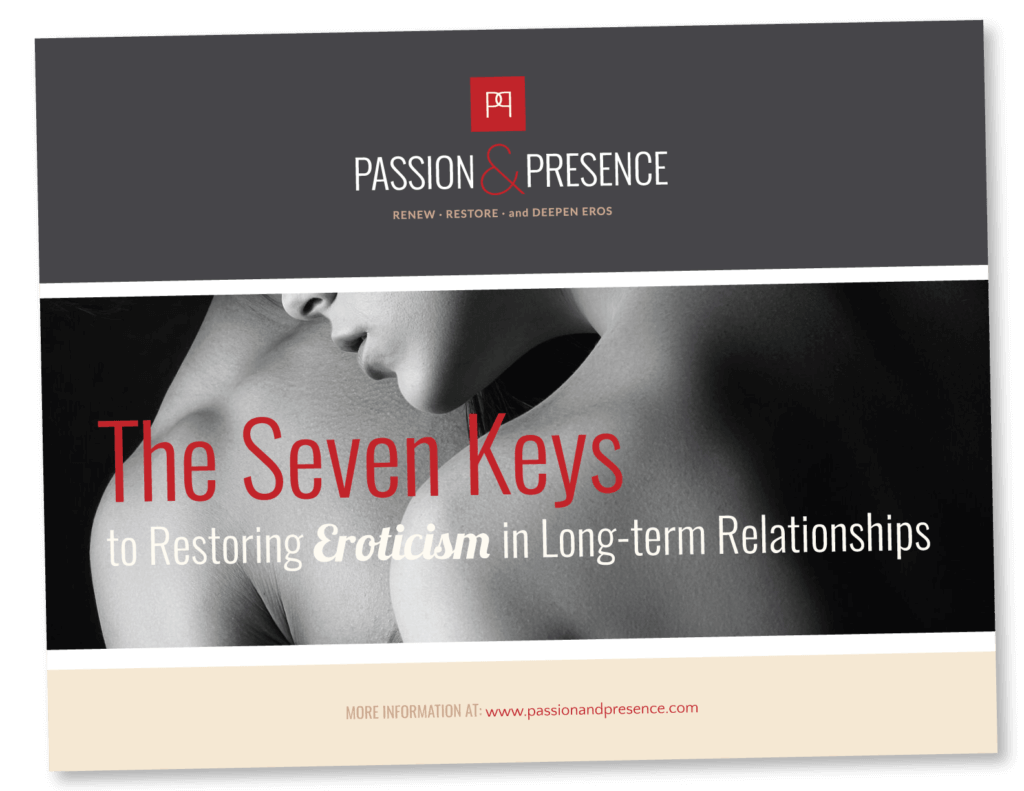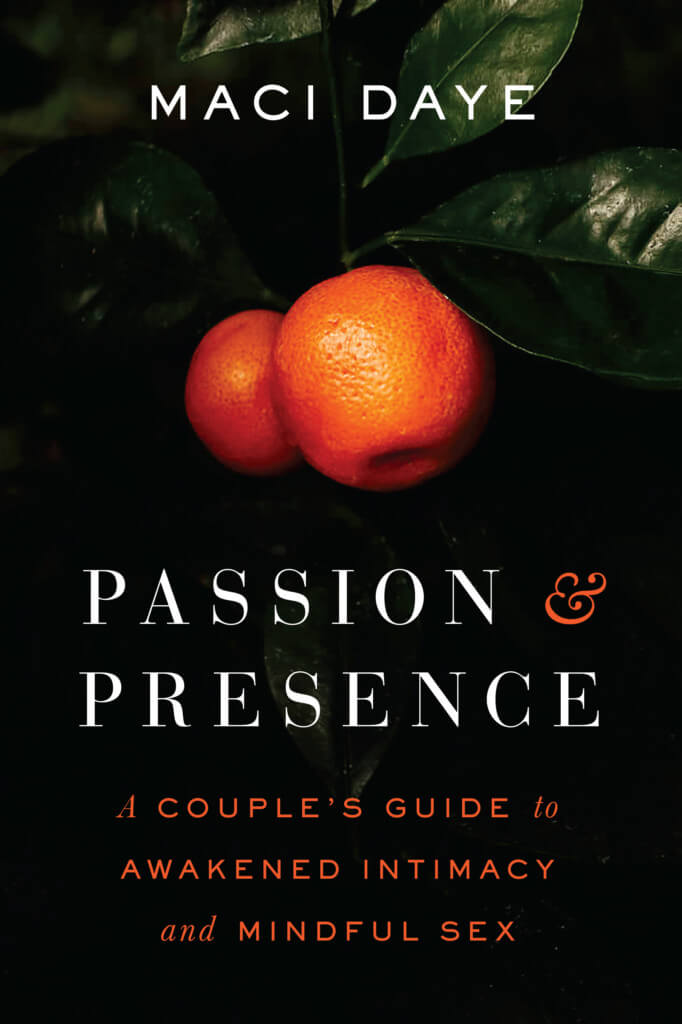Nature is playing a trick on you …
Falling in love is the greatest “turn on.” When we’re in love, we feel high thanks to a potent and addictive “passion cocktail” of biochemicals that stimulate the reward centers of the brain. Essentially, this is nature’s trick to nudge couples to hook up and reproduce.
Soon after, however — somewhere between six months and two years — nature wants to turn us from love-crazed paramours into nurturing “cuddle bunnies.” We are now flooded with oxytocin, the bonding hormone. This is nature’s next trick! It wants us to stick together at least long enough to raise the kids that ensue from its first trick. The cost of this is that desire now takes a serious nosedive! As a result, our partners lose the “halo effect.” Now we start seeing their flaws more clearly (but really they’ve been there all along).
According to anthropologist Helen Fisher, breakups, affairs, and divorces happen in record numbers at the two to four year mark of a relationship, no matter how much love or chemistry there was at the beginning.
Too close or too far?
One important reason for breakups is that couples often become “fused” (too close) or “estranged” (too distant). Successful couples choose to recalibrate their “near/far relational dynamics” frequently because they know if they stay fused or estranged for too long, passion and desire die away.
Sex expert Tammy Nelson explains that when we feel “fused” with our soulmate, there’s no obstacle to connection, no sense of specialness or scarcity, and the chase dynamics that spur hot pursuit extinguish. There is a much greater dopamine reward for “catching” an object of desire than actually “having” it.
In other words, “chasing and dating” is more exciting than the comfort of “capture” and companionship. Our initial passion for each other means we desire togetherness every evening and sleeping in the same bed every night, but this very closeness then dampens our passion and intimacy.
At the other extreme, some of us become so estranged over time that we can’t imagine making love to each other again.
Meeting your love again for the first time: reconnecting and renewing
Certainly, it’s difficult to give up the high, and easy to mistake that bonding is boring. This is why so many long-term relationships end despite a rocket-fueled start.
So what is the secret to a sizzling sex life even after many years? After working with countless couples that successfully reconnected and reignited their passion, we encourage couples to consciously choose to meet anew through the practice of mindfulness.
Mindfulness helps us come off of autopilot and meet in “real time.” So what are a few of the most powerful approaches we know of to enliven Eros, regardless of whether you feel fused or estranged?
1. Actively see your partner with fresh and loving eyes.
See each other with “fresh eyes.” The bonding phase is when it becomes possible to truly become present to each other — to truly be seen, truly heard, truly felt. This can only happen moment by moment. In fact, “in the now”is the only time in which true intimacy is possible.
Paradoxically, hidden behind all the routines and banality is the chance to reconnect in a deeper, more authentic way. The real challenge — and the real gift — is learning how to love the person you have chosen, as he is, not the impossibly flawless version of him that you started out with.
2. Make time for each other as lovers.
Yes, set those date nights. Get away from your kids, work, chores for the evening on a regular basis. It is so easy to forget how our partners are our lovers, aside from the other roles they play, such as parent, cook, driver, cleaner, gardener, dog walker — you get the drift.
Esther Perel explains that lust breeds in the shadows, in clandestine places, not in banal domesticity. So one way in which to invite some mystery back into your lust-less relationship is to spend time with your partner in a new, undomesticated setting.
3. Create a state of novelty.
Novelty tricks the brain into producing the chemicals of desire so many counselors advise couples to try new sex toys or positions. The problem with this is that it is too easy to forget to attend to each other’s state. We recommend instead creating a “state of novelty” in which couples enter each erotic encounter as if it is the first (and possibly last) time.
Thus, lovemaking remains fresh rather than scripted, conscious and creative rather than automatic, because now there is no template. There is only the pure potential that is available when we surrender our performance goals and meet what is unfolding here and now.
Maci Daye, Certified Sex Therapist and creator of Passion and Presence®, leads webinars and retreats for couples and helping professionals on “Tending Eros in Long-Term Relationships.”Learn how to revive the passion in your relationship at PassionAndPresence.com













